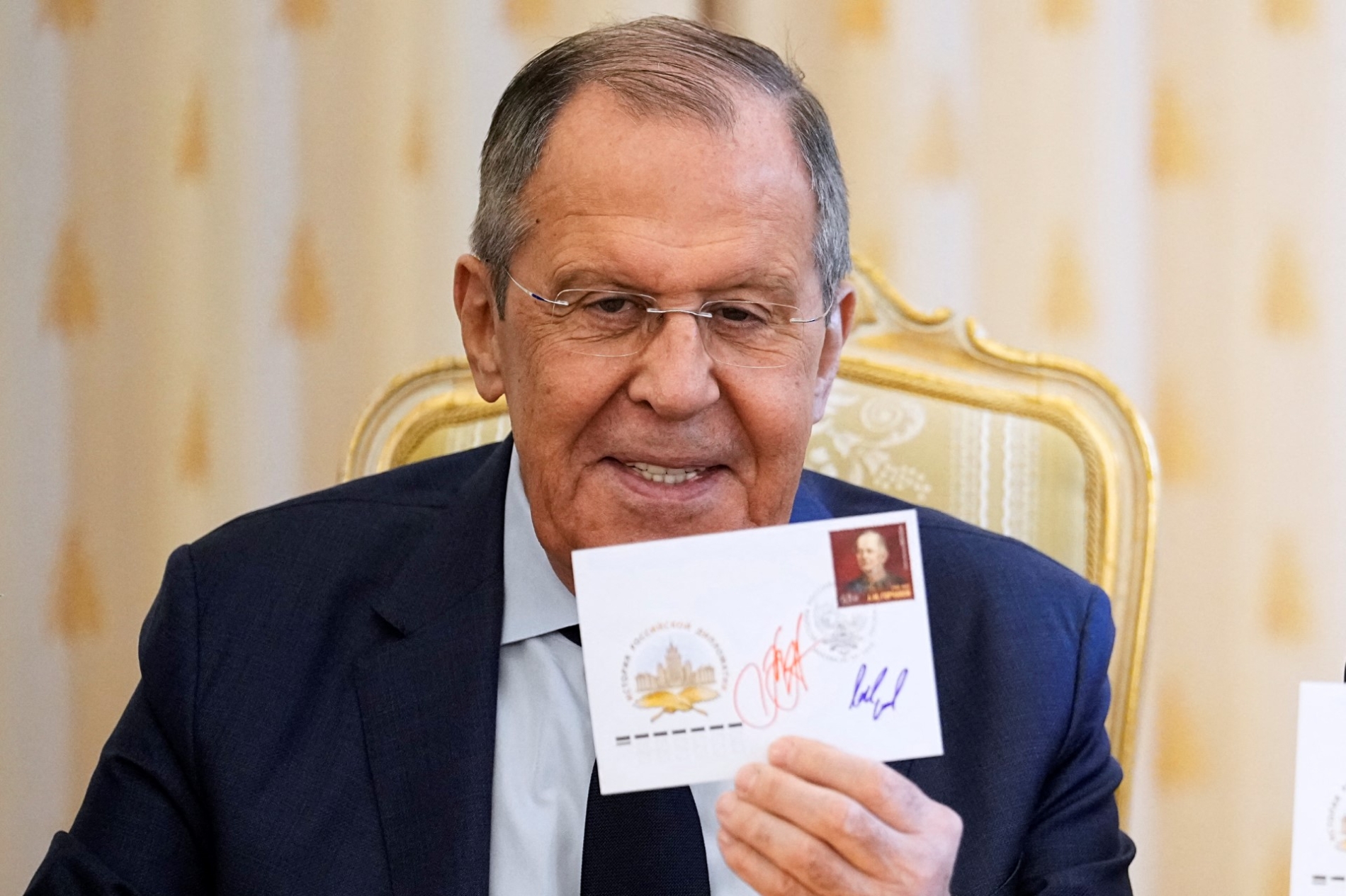When Russian President Vladimir Putin bestowed the country’s highest honour on Sergei Lavrov, Moscow’s long-serving foreign minister, earlier this year, it was in recognition of the years he has spent as the Kremlin’s faithful upholder of Russian foreign policy.
Putin’s decree announcing Lavrov’s appointment to the Order of Saint Andrew the Apostle the First-Called—Russia’s highest state award—said it had been made in recognition of his "outstanding services to the Fatherland, significant contribution to developing and implementing Russia’s foreign policy course, and years of dedicated activity as a statesman."
The appointment was made just as Lavrov celebrated his 75th birthday in March, having held the position as Russia’s top diplomat for almost 22 years, during which period he has presided over some of Moscow’s most challenging diplomatic crises in his distinctive style.
Direct and—at times—intimidating, Lavrov has been Putin’s loyal enforcer on issues ranging from Syria’s civil war, which resulted in Russia launching a military intervention in support of Syrian president Bashar al-Assad, to the more recent conflict in Ukraine, where he has rigorously defended Russia’s 2022 military invasion.
Lavrov’s assertive and sometimes intransigent conduct has earned him the nickname "Mr Nyet" ("Mr No")—a term first coined during the Cold War to describe one of his Soviet predecessors, Andrei Gromyko.

Longest-serving diplomat
Lavrov has held diplomatic posts for 31 years, making him the longest-serving government official—longer than any other Russian diplomat. Gromyko's tenure lasted 28 years, and the State Chancellor of the Russian Empire, Alexander Gorchakov, spent 26 years in diplomatic service.
In the wake of the Salisbury poisonings in the UK in 2018, when Russian agents attempted to murder former Russian spy Sergei Skripal with Novichok nerve agent, Lavrov responded furiously to accusations that Moscow was to blame.
"We will never cave in to ultimatums, you cannot talk with the Russian Federation using that kind of language," he told fellow Russian diplomats expelled over Skripal’s poisoning.
During the Syrian war, Lavrov led Moscow’s diplomatic campaign to use its power of veto at the UN to block every effort to sanction the Assad regime.
And he memorably declared, on the eve of the Ukraine conflict, that Russia would never invade Ukraine, and then, when Russian forces eventually launched their military invasion, insisted that it was Ukraine—not Russia—that launched hostilities, due to its insistence to join the NATO alliance, something Moscow views as intolerable threat on its doorstep.











